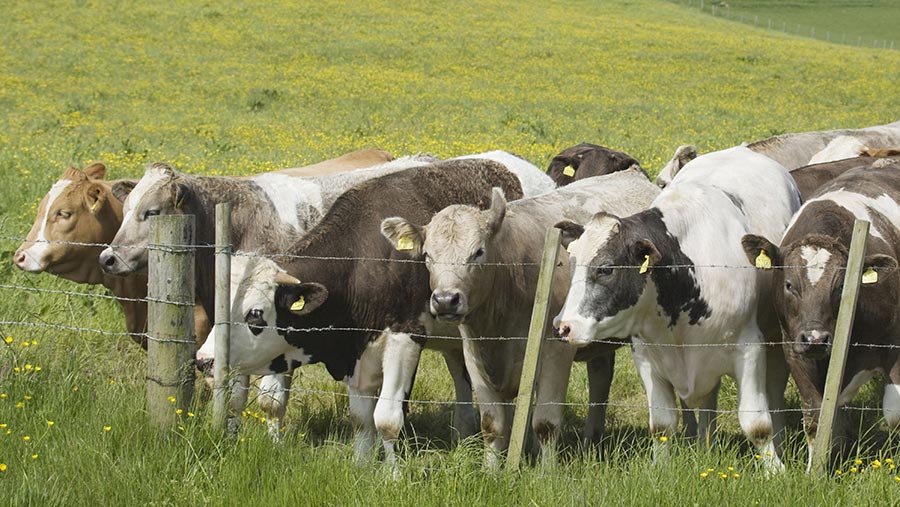Scottish abattoirs want government to guarantee beef finisher returns
 © FLPA/Shutterstock
© FLPA/Shutterstock Scottish meat wholesalers want farmers to be guaranteed a return of more than £3.60/kg dw for all properly finished and marketed cattle, to stabilise production and restore confidence in the sector.
In an unusual move, the Scottish Association of Meat Wholesalers (SAMW) has written to the Cabinet secretary for the rural economy, Fergus Ewing, urging him to put measures in place to top up farmers’ market returns to the £3.60/kg level.
The association wants to see beef cattle retained at least at current numbers on Scottish farms.
However, in its letter, the SAMW also states that with world wholesale prices currently being so low, and competition so high, the processing sector is simply unable to pay any more for livestock.
“When, as now, the market is depressed, we would contend that the convergence funding promised by the prime minister should be used by the Scottish Government to fund a short-term support scheme to top up farmers’ market returns,” said the letter.
This would be subject to cattle hitting the correct specification, which is within 280kg-360kg dw and grades O+4L, R3, R4L, U3 or U4L.
See also: Business Clinic: Your questions answered by our expert panel
“This would allow cattle finishers to be able to buy store cattle, knowing they have a guaranteed finished price for all cattle that are in the right specification to what the consumer wants.
“Compliance with these parameters could be monitored via the Bovine EID database.”
The letter also says that the current food safety regime places an unnecessary cost burden on red and white meat processing that other protein sectors do not have to bear.
NFU wants answers on cause of low beef price
British farmgate beef prices are unsustainable, having fallen for 12 weeks to sit 22p/kg below the five-year average.
“Farmers are getting £200-£300 per animal less than they were few months ago,” said NFU livestock board chairman Richard Findlay.
Clarity is needed on what market factors are driving this low farmgate price, he said.
“Without understanding what’s causing a market movement, we can’t respond to it, and for us to understand it, we need greater transparency throughout the whole supply chain.
“This includes clearer pricing structures, terms and conditions with notice of any changes and a wholesale review of processor deductions.
“This is not just about a few financial losses but the long-term sustainability of the British beef sector.
“If we don’t get to the bottom of what’s driving the low price, we will start to see farmers leaving the sector.”
“It is clear that there is a market for British beef, so it’s difficult to understand where this low price has come from and why it’s not picking up.
Protests resume in Ireland
Irish farmers have resumed protests at meat plants, drawing threats of legal action from the meat processors.
Representing the abattoirs, Meat Industry Ireland (MII) said that blockades were putting Irish jobs at risk, putting exports to existing customers at risk and damaging its members’ ability to win new markets for Irish beef.
The blockading activity was stopping cattle entering and meat consignments leaving an increasing number of beef processing facilities, leaving companies with no alternative but to seek legal protection for the business from the court, said MII.
The recent beef Irish crisis talks were held on condition that price was not discussed.
“Price is determined by conditions in the market at present, which are acknowledged by all as being extremely challenging.
“There simply isn’t more in the marketplace right now,” said an MII statement.
“Furthermore, the week ahead sees the commencement of a round of important processing plant inspections by a Chinese official delegation with a view to approving more beef plants for export to China.
“This is a positive for the entire sector, and any plant disruptions should not be turned into an own goal.”
